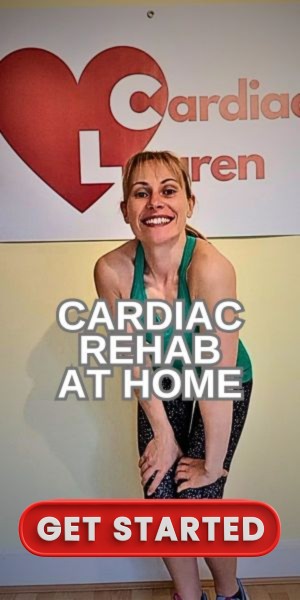It’s normal for your diagnosis to impact some of the relationships in your life. Due to the emotional nature of the subject, your friends and family may react differently to the news. It is important to remember that their response doesn’t change their feeling towards you; the fact is that people show their emotions differently. So while some people become immediately protective of their loved one and want to be involved as much as possible in recovery, it may take some time for others – particularly children – to come to terms with the news.

It is important to emphasise that everyone is different when it comes to maintaining relationships following a heart event. However, with patience and awareness, the bond between you and a loved one can grow stronger than ever before.
Read about how to navigate your relationships below, to ensure that you receive the best support from your friends and family following your diagnosis.
Table of Contents
Time to communicate
Communication is key when it comes to maintaining strong relationships following any health diagnosis. Put plenty of time aside to speak to your loved one about your diagnosis. Even if the news upsets them initially, later on they will appreciate you giving your time to talk to them about your condition.
We recommend that you choose a suitable time and place (a safe, private space such as your kitchen table) to have the conversation, and think about what you need to express to your loved one – for example, details about your diagnosis; your needs from them; and potentially reassurance that they can maintain ongoing communication with you and ask questions about your condition.
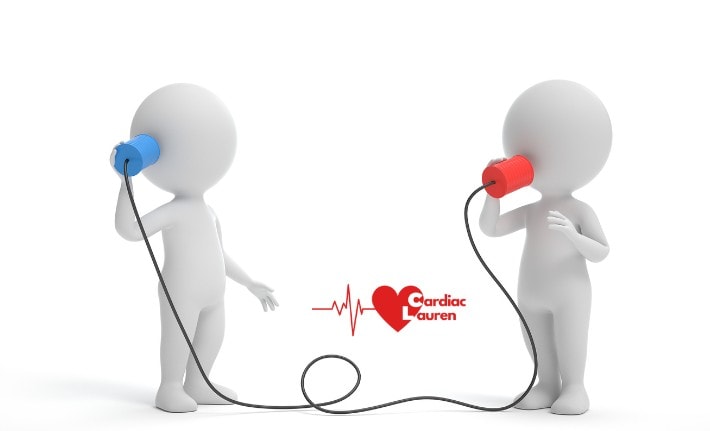
When a family member becomes a carer
Whether it’s short-term or long-term, becoming a carer for somebody else can be a daunting challenge and one which may take some time to adjust to. Try to be patient with a loved one who becomes a carer, as they may make mistakes at first and need encouragement and reassurance from you that they are doing a good job. Gently remind them when something needs doing and let them know that you trust them to care for you.

If your partner becomes your care-giver, it may impact the intimate side of your relationship. This is because the practical requirement of care may overshadow the emotional and physical connection with your partner. Let your partner know that they can still show intimacy and affection towards you, even if it is through kissing, caressing and other romantic gestures.
When somebody becomes overprotective
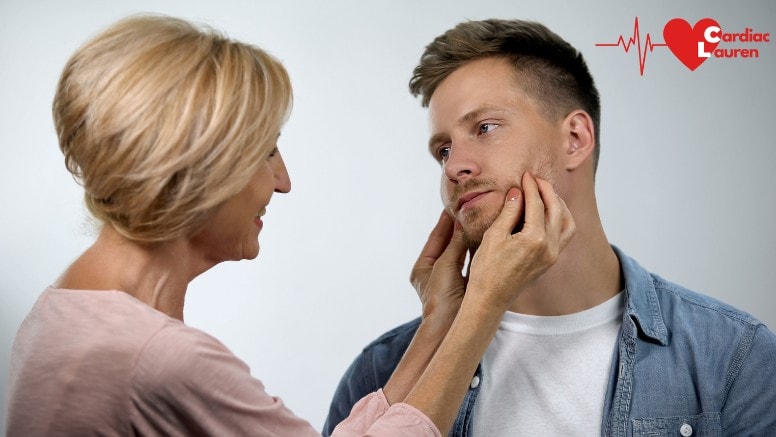
Overprotective friends and family mean the best. Although they may come across as bossy, overprotective loved ones are often chronic worriers whose way of coping is to ‘control’ as much as they can. It can, however, be frustrating to be bombarded with ‘advice’ or told when to take your meditation or how to eat.
As long as you are following your doctor’s advice, if you find someone’s behaviour too overprotective, find a time and place to speak with them. Kindly but firmly tell them that you appreciate how dedicated they are to supporting you, however, you are finding their behaviour overbearing and unnecessary. Tell them your honest feelings and reassure them if need be that you are making steps towards better health. If appropriate, you could also set boundaries; for example, you can remind me to take my medication if I have clearly forgotten, however, you should not comment on my diet.
How to speak to children about your diagnosis
Think carefully about what you’d like to share about your health condition with your child, but aim to be clear and honest. Many children will be frightened and worried by the news; they may have heard of similar events from school friends or even in the news. Allowing your child to ask questions about your condition is crucial, as well as reassuring them that you are still their parent who loves them.
For older children, consider that they may feel guilty for spending time away at home; for example, if they are out with friends after school or moving to college or university. Reassure your older child or teenager that you want what’s best for them and ensure that their own needs are being met – particularly if they are helping out more around the house.
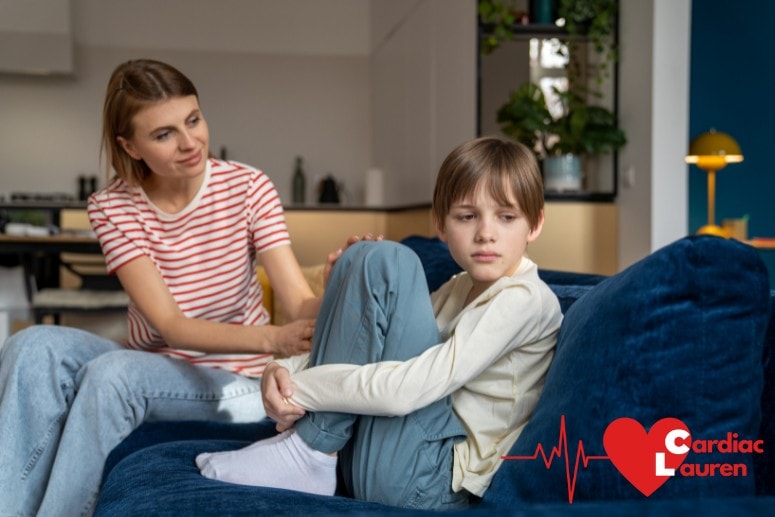
Some children and even adults lash out when they hear upsetting news. Try to be patient with this, and let them know that you are here for them if they are ready to engage with you calmly again. Lashing out often occurs when a person takes a longer time to process negative news; it is upsetting for you, but time usually changes their perspective. Also, consider letting your child’s school know about your diagnosis. Most schools have support systems, or at least your child will be on a teacher or pastoral worker’s ‘radar’.
How can I support my friend with their diagnosis?
If you are a friend of someone who has been diagnosed with a heart condition, you may feel the need to back away to give them more time with family. Alternatively, as a non-family member, you may feel helpless and the need to ‘overcompensate’ to support your friend (such as more phone calls and coming around with support packages).

The best balance between these two reactions is to continue your friendship as normal, but occasionally ask if they need extra support from you. Some people will want to talk about their diagnosis, whereas others – especially with their friends – want their time with you to be as close to ‘normality’ as possible. Listen to your friend and understand their needs but try not to treat them differently to how you would have done before – have a laugh!
Friendship advice for the diagnosed
You may wish to tell your friend that they can ask about your condition, rather than ‘tip toe’ around the subject. They may be nervous or unsure whether they can bring this up with you. This is completely your decision, but perhaps a good early boundary that you can set with them.
Friendship circles also often involve social drinking, which you may have been instructed to avoid by your doctor. If it becomes clear that your relationship with your friend is based on alcohol, or they put pressure on you to continue drinking, then it is best to avoid these individuals and work on the more meaningful relationships in your life. Nobody should ever pressure you to drink while diagnosed with a heart condition; as long as they understand the implications for your health, then there is no excuse for this behaviour.

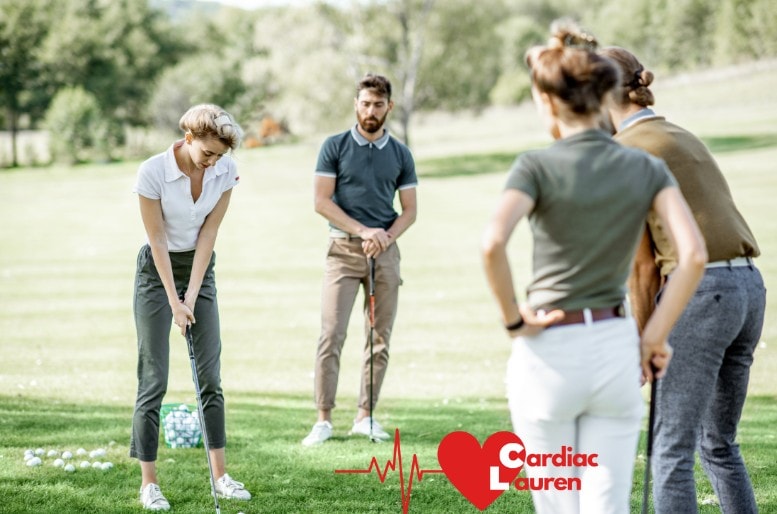

Overall, the news of your diagnosis will produce a range of different reactions, from shock to fierce protectiveness. While some people may become more distant and others closer, give your loved ones time to process the news and make your needs clear to them. Try to be patient, as it may take a while to navigate a relationship where the dynamics have shifted slightly. Most importantly, make sure that your relationships are still grounded in equality and bring you joy.
Make time to do the things you enjoy with your loved ones; laugh a lot; and create meaningful moments.
In Cardiac Lauren there is a support network via our WhatsApp group where members can ask each other questions and offer support. For Heart Failure patients find more information here.





